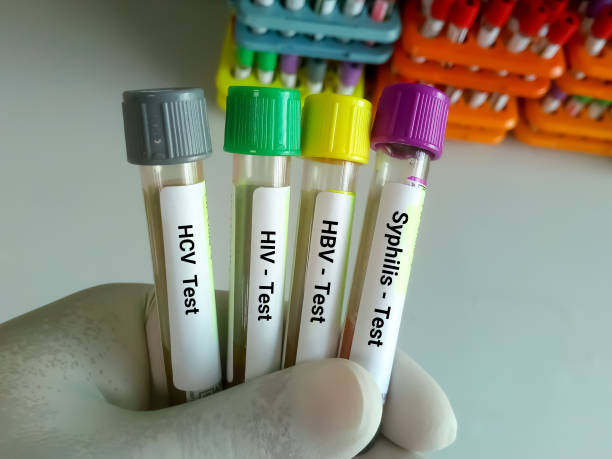
The term sexually transmitted diseases is used for diseases that are transmitted from one person to another by vaginal, anus, or oral sex. STD is also called sexually transmitted infection (STI) or venereal disease. This does not mean at all that STDs are only transferred through sex. So, see below the different types of STD…
(Also Read: 9 Ayurvedic Herbs For Sex Power)
Table of Contents
Symptoms of STDs:
These infections are mostly sexually transmitted. Some STDs have obvious symptoms. The common symptoms of STD are as follows:
- Rashes
- Pain during sex or urination
- Itching around the vagina / vaginal discharge in women
- Discharge from the penis in men
- benign abscesses or blisters
- Unusual sore throat, unexplained tiredness, night sweats, and weight loss.
However, many people do not experience any symptoms of STDs. Some STDs lie dormant for many years. According to the Mayo Clinic in the US, STDs without symptoms are more common because many people who are infected do not know they are infected. Thus STDs are easily transferred from one person to another. Even if they are not treated, internal damage can also happen.
According to the Centers for Disease Control and Prevention, syphilis and HIV can have serious consequences if left untreated. However, even common diseases like gonorrhea and chlamydia can cause problems if they go undiagnosed for a long time. The possible consequences of a chronically untreated STD are as follows:
- Infertility
- Various cancers
- Serious diseases
- Death
(Also Read: What Are The Benefits Of Sex Regularly?)
Most Common Types of STDs:
The most common types of STDs are…
Genital Herpes:
According to a WHO report, about two-thirds of people in the age group of 50 years are suffering from herpes worldwide. Actually, no symptoms of this infection are experienced. There is no cure for this disease, however, if you are aware of it, you can avoid it and start its treatment as soon as possible. Herpes is a sexually transmitted disease that is spread through sexual contact. It is of two types, oral and second genital. It is also called HSV 1 and HSV 2 viruses. Unfortunately, no medicine has been made for its treatment, but research is being done.
Gonorrhea:
Gonorrhea is a sexually transmitted disease. This is also called “the clap”. Its bacteria spread rapidly in women and men. Within two days to two weeks after suffering from this sexually transmitted infection, a burning sensation in urine and later liquid or thick pus or bloody urine is its main symptom. Women have a burning sensation in urine and white discharge, pelvic and back pain, swelling in fallopian tubes, and sterility. According to the CDC, untreated gonorrhea can lead to:
- Infertility.
- Serious health problems in newborns
- Gonorrhea is treated with antibiotics.
(Also Read: What Are The Effects Of Not Having Sex On Your Body?)
Chlamydia:
According to the US CDC, chlamydia is the most common sexually transmitted infection caused by bacteria. Many people do not feel any symptoms of chlamydia. If they occur, they are similar to gonorrhea. If it is not treated, the following problems can occur:
- Pelvic inflammatory disease (PID- Pelvic inflammatory disease)
- Infertility
- Blindness in newborns
It is also treated with antibiotics
Syphilis:
Syphilis is also a bacterial infection that is usually contracted by having sex with an infected person. Syphilis is also called syphilis. It is an infection of the reproductive organs and if not treated early, it can lead to complications and turn into serious health problems.
Later symptoms may include:
- Tiredness
- Fever
- Rashes
- Muscle pain
If left untreated, the following problems can occur:
- Peripheral nerve damage
- Brain damage
- Death
Newborns often die when they get infected.
(Also Read: 7 Best Hygiene Tips for Athletes)
Human PapillomaHirus (HPV)
HPV can cause the following health problems:
- Genital warts
- Cervical cancer
- Oral cancer
- Penile cancer
- Rectal cancer
- Vulvar cancer
There is no cure for HPV. There is a vaccine available, however, that can protect against some of the more dangerous, cancers caused by HPV.
Human Immunodeficiency Virus (HIV):
HIV i.e. Human Immunodeficiency Virus is a virus that has a negative effect on the body’s immune system and weakens its immunity day by day. Feeling fever every two to three days and sometimes high fever is the first symptom of HIV. Being more tired than before in the last few days or feeling tired all the time is an early symptom of HIV. In HIV, the patient’s weight does not decrease at once. Every day there is a gradual effect on the system of the body and there is a reduction in weight.
(Also Read: Sex Life VS Corona Virus | Sex Guide In Corona Pandemic)
Other STDs:
Other, less common STDs are as follows:
- Chancroid
- Lymphogranuloma venereum
- Molluscum contagiosum
- Pubic lice
- Scabies
- Diagnosis of sexually transmitted diseases
Most STDs cannot be diagnosed based on symptoms. Tests are needed to determine whether you have an STD and, if so, which STD.
Nowadays, most STDs are diagnosed by urine or blood tests. In addition, cleaning the lesions with a brush can be done to check for the virus. Taking samples from the urethra and vagina (vaginal swabs) can also be used to diagnose STDs.
You can also get tested for STDs at your doctor’s office. Although home-testing kits are also available these days, they are not always reliable.
There is also the option of STD testing on the Internet. Like at-home kits, the quality of its tests also varies.
It is important to know that Pap smear is not for STD test. Some women may be tested for HPV with this. However, a negative Pap smear does not mean that you do not have other STDs. You’ll need to test for each STD separately.
Treatment of STDs:
The treatment of STD depends on its type. Depending on the type of STD you have, you and your partner must be successfully treated for STDs before having sex. Otherwise you can spread this infection.
Bacterial STD:
Bacterial infections can usually be treated fairly easily with antibiotics. All antibiotics must be used for a reason as prescribed by a doctor. You should continue taking them even if you already feel better. If your symptoms do not go away with treatment or if they come back, you should tell your doctor without delay.
Viral STD:
Viral infections usually have no cure. However, treatments are available for many of these viral infections. Treatment is very effective at stopping HIV from progressing. Medications are also available to reduce the severity of shingles. In addition, antiviral drugs can reduce the risk of transmitting an STD to a partner.
Other STD:
Some STDs are neither caused by virus nor by bacteria. They are caused by other smaller organisms, such as:
- Pubic lice
- Scabies
- Trichomoniasis
- Hepatitis
These STDs are usually easily treated by suitable oral medications.
(Also Read: Is It Safe To Have Sex In Corona Virus Pandemic Situation?)
Prevention from STD:
Abstinence is the only way to avoid these diseases. Apart from this, the use of condoms at the time of sex and cleaning of the genitals with soap after sex is the best way to prevent sexually transmitted diseases. The diagnosis and treatment of these diseases should be accessible to all and the common people should be given proper information regarding these diseases, so that the people suffering from these diseases can leave fear, shame, hesitation etc. and take the advice of the doctor. If possible, get vaccinated for HPV and hepatitis.
You can save yourself from hidden diseases by following measures –
By getting yourself and your partner examined before making a relationship.
The correct use of latex condoms by men reduces the risk of suffering from these diseases. However, female condoms are not as effective as male condoms. But if men do not use it, then women must use it.
Keep getting sexual tests done from time to time.
FAQ’s:
Q. Can sexually transmitted diseases be asymptomatic?
A. Yes, sexually transmitted diseases like gonorrhea and chlamydia are asymptomatic and hence their diagnosis is difficult.
Q. Can a sexually transmitted disease be diagnosed through a urine sample?
A. Currently, only STDs caused by bacterial infection are being diagnosed through urine test.







Leave a Comment